Module 12 – Life Satisfaction

LLM Online
©Arlene R. Taylor, PhD
Module 12 – Life Satisfaction
Life Satisfaction is one of the most decisive factors for healthy aging and longevity.
—David Schnaiter
To Begin
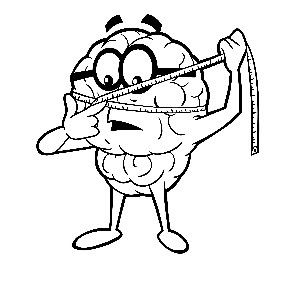 Weigh yourself in your underwear or clothes that you will wear each week on the same scales—no belt, shoes, sweater, or jacket.
Weigh yourself in your underwear or clothes that you will wear each week on the same scales—no belt, shoes, sweater, or jacket.- Measure your waist around the level of your belly button.
- Calculate your Body Mass Index using the BMI chart. Use your height in centimeters.
- Record data on the Weekly Comparison form.
- Write in your own goal on the Daily Goals form.
- Post it where you can see it easily. Record your data each day.
We cannot change our past. We cannot change the fact that other people will act in a certain way. We cannot change the inevitable. The only thing we can do is play on the one string we have and that is our attitude. I am convinced that life is 10 percent what happens to me and 90 percent how I react to it. And so it is with you. We are in charge of our attitude.
—Charles Swindoll
Overview
- Although Life Satisfaction is being touted as one of the most decisive factors for staying healthier and younger for longer, the topic is more complex than some might realize. Beyond a recognition or evaluation of a person’s current level of happiness or accomplishment or a positive or negative event,
 Life Satisfaction is an evaluation of one’s overall life. It seems to come from within, based on personal values and what he or she believes is important. Studies in various cultures have shown that an emphasis on materialism—i.e., money, possessions, affluence, class, “things,” technology, even whom you pride yourself on knowing or hanging out with—does not appear to be linked with higher levels of Life Satisfaction.
Life Satisfaction is an evaluation of one’s overall life. It seems to come from within, based on personal values and what he or she believes is important. Studies in various cultures have shown that an emphasis on materialism—i.e., money, possessions, affluence, class, “things,” technology, even whom you pride yourself on knowing or hanging out with—does not appear to be linked with higher levels of Life Satisfaction.
- Life Satisfaction seems to increase as people grow older, especially as they become wiser and more knowledgeable and practically apply what they have learned—especially in relation to choosing positive mindset and self-talk styles. Interestingly, studies have shown that morning-oriented individuals
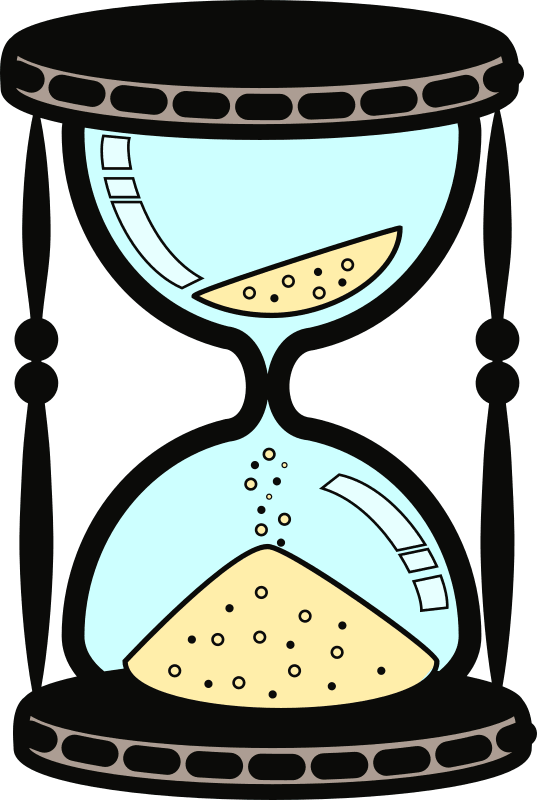 (sometimes referred to as “larks”) tend to show higher levels of Life Satisfaction than do evening-oriented individuals (often called “night owls”). When you clearly understand that each brain is different and each brain only has its own opinion, there is little if anything to take personally or about which to jump to conclusions or against which to overreact.
(sometimes referred to as “larks”) tend to show higher levels of Life Satisfaction than do evening-oriented individuals (often called “night owls”). When you clearly understand that each brain is different and each brain only has its own opinion, there is little if anything to take personally or about which to jump to conclusions or against which to overreact.
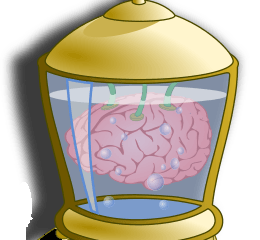 The human brain is a relational brain. According to Dean Ornish, MD, isolated people have vastly increased rates of premature death from all causes and are 3-5 times more likely to die early than people with strong social ties. In her research,
The human brain is a relational brain. According to Dean Ornish, MD, isolated people have vastly increased rates of premature death from all causes and are 3-5 times more likely to die early than people with strong social ties. In her research, 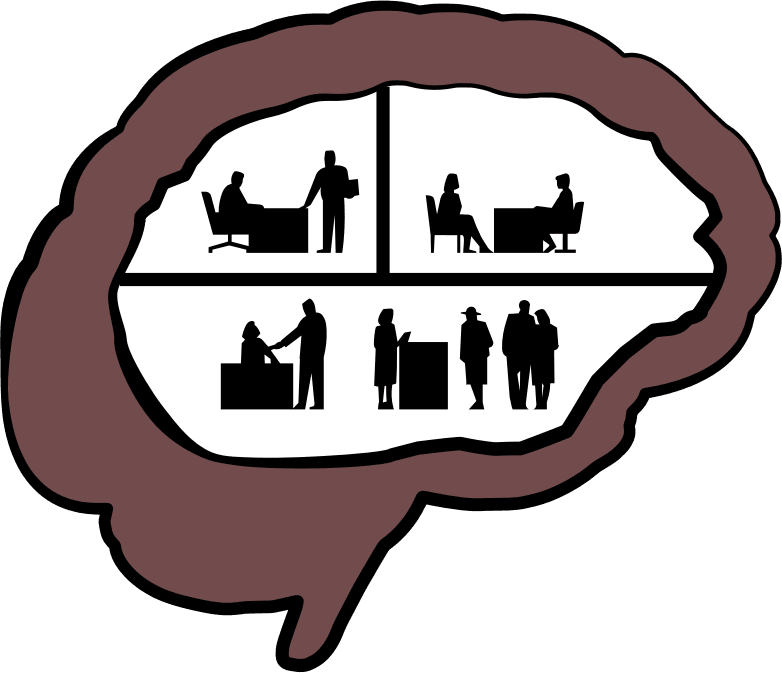 Bernice Neugarten, PhD, found that satisfaction in old age depends on active maintenance of personal relationships and endeavors. In the population group studied, she and her team identified 5 factors related to Life Satisfaction:
Bernice Neugarten, PhD, found that satisfaction in old age depends on active maintenance of personal relationships and endeavors. In the population group studied, she and her team identified 5 factors related to Life Satisfaction:
-
- Zest: an enthusiastic response to life in general
-
- Resolution: active acceptance of personal responsibility for one’s life rather than passively accepting whatever happens
-
- Congruence: greater harmony between one’s desired (versus achieved) goal
-
- Self-Concept: perceiving one’s self as wise and competent and not feeling “old”
-
- Mood: high levels of happiness and other positive affective states
Adults remain social animals; they continue to require a source of stabilization outside themselves. That open-loop design means that, in some important ways, people cannot be stable on their own—-not should or shouldn’t—-but cannot be.… Stability means finding people who regulate you well and staying near them.
—Thomas Lewis, MD
 Reminder: Drink a glass of water. View the Educational Video. Stand and walk in place for at least a portion of the video to increase blood flow to your brain.
Reminder: Drink a glass of water. View the Educational Video. Stand and walk in place for at least a portion of the video to increase blood flow to your brain.
Science in a Nutshell
 Psychoneuroimmunology (PNI) is the study of how your thoughts can alter levels of several chemicals in your brain and body. Studies have shown that, as the brain’s neurochemistry changes, the chemical composition in both the brain and body change, as well. This impacts your energy levels and either enhances or suppresses immune system function.
Psychoneuroimmunology (PNI) is the study of how your thoughts can alter levels of several chemicals in your brain and body. Studies have shown that, as the brain’s neurochemistry changes, the chemical composition in both the brain and body change, as well. This impacts your energy levels and either enhances or suppresses immune system function.
A number of contributors can increase one’s Life Satisfaction: first, a mindset that looks favorably on one’s life and overall accomplishments (rather than current, fleeting, or momentary feelings); second, a balanced sense of self-esteem; third, an ongoing sense of hope; fourth, a decision to choose happiness; and fifth, solid Emotional Intelligence skills that help to minimize conflict.Nothing can be done without hope and confidence.
—Helen Keller
- Research by internationally-known cardiologist Herbert Benson, MD, concludes that being unable to forgive other people’s faults—or your own—is harmful to one’s health. Benson coined the phrase: “The Physiology of Forgiveness®.” Unforgiveness results in negative outcomes to your health and overall wellbeing, while forgiveness results in positive outcomes to your brain and body with increased health and overall wellbeing, adding to a positive impact on Life Satisfaction.
 It appears that the person who chooses to forgive reaps the most benefits in terms of health and wellness. Can you afford to be unforgiving? Those who refuse to forgive build, in effect, an enemy outpost in their brain that requires energy and resources better used in other ways. This tends to decrease Life Satisfaction.
It appears that the person who chooses to forgive reaps the most benefits in terms of health and wellness. Can you afford to be unforgiving? Those who refuse to forgive build, in effect, an enemy outpost in their brain that requires energy and resources better used in other ways. This tends to decrease Life Satisfaction.
- A growing body of research links happiness with Life Satisfaction. Happiness can improve one’s physical health and has been linked to a potentially longer lifespan. Feelings of positivity and contentment seem to benefit cardiovascular health, the immune system, inflammation
 levels, and blood pressure, among other things. Researchers found that different types of happiness have surprisingly different effects on the human genome. People who have high levels of “eudaimonic well-being”— happiness that comes from having a deep sense of purpose—show favorable gene-expression profiles in their immune cells. They also had low levels of inflammatory gene expression and strong expression of antiviral and antibody genes. People who have relatively high levels of what is called “hedonic well-being”—as in hedonist, the kind of ha
levels, and blood pressure, among other things. Researchers found that different types of happiness have surprisingly different effects on the human genome. People who have high levels of “eudaimonic well-being”— happiness that comes from having a deep sense of purpose—show favorable gene-expression profiles in their immune cells. They also had low levels of inflammatory gene expression and strong expression of antiviral and antibody genes. People who have relatively high levels of what is called “hedonic well-being”—as in hedonist, the kind of ha ppiness that comes from self-gratification—show just the opposite. Their genes had adverse profiles involving high inflammation and low antiviral and antibody expression.
ppiness that comes from self-gratification—show just the opposite. Their genes had adverse profiles involving high inflammation and low antiviral and antibody expression.
Who you are today is the outcome of the choices you have made in the past. Choices that you will make today will shape your future.
—Vishwas Chavan
Matter of Fact
1st –
Happiness. Joy cannot coexist simultaneously in the brain alongside anger, fear, or sadness.  A mindset of cheerfulness promotes congruence of thoughts, emotions, and feelings. All these lead to positive self-talk which increases Life Satisfaction, improves problem solving, provides an antidote for fear, and enhances both health and potential lifespan.
A mindset of cheerfulness promotes congruence of thoughts, emotions, and feelings. All these lead to positive self-talk which increases Life Satisfaction, improves problem solving, provides an antidote for fear, and enhances both health and potential lifespan.
| Happiness is not by chance but by choice. —Jim Rohn |
No one can make you happy and no one can make you unhappy, although the behaviors of others may temporarily enhance or detract from your happiness. Pretending you are happy—while denying or not addressing issues that need to be resolved and/or let go—does not lead to genuine happiness. More than simply a positive mood, happiness is a state of well-being that encompasses living a life with a sense of meaning and deep satisfaction. In short, you are responsible for your own happiness. This realization can motivate you to stop making your happiness  dependent on external influences, such as money, tangible assets, people, and how your career progresses. Since you reflect the people you hang out with, spend time with a small group of “happy” people. Studies have shown that human beings not only have a happiness “set-point” around which they oscillate, but also can reset this set-point. For example, the long-term happiness levels of both lottery winners and accident victims were not at all influenced by the events. Despite initial spikes in either happiness or sadness, the scientists noted that the happiness levels in both groups quickly returned to their regular state.
dependent on external influences, such as money, tangible assets, people, and how your career progresses. Since you reflect the people you hang out with, spend time with a small group of “happy” people. Studies have shown that human beings not only have a happiness “set-point” around which they oscillate, but also can reset this set-point. For example, the long-term happiness levels of both lottery winners and accident victims were not at all influenced by the events. Despite initial spikes in either happiness or sadness, the scientists noted that the happiness levels in both groups quickly returned to their regular state.
The body is like a piano, and happiness is like music. It is needful to have the instrument in good order.
—Henry Ward Beecher
2nd –
Gratitude. An “attitude of gratitude” is often linked with Life Satisfaction. Thankfulness has been shown to help delay gratification, a critical requisite for almost any type of success. In one study, those who wrote “gratitude letters” to others who had made a difference in their lives were found to score higher on scales of happiness and lower on scales of depression. And the effects lasted for weeks! Melody Beattie’s opinion is that gratitude “unlocks the fullness of life.” Since everything begins in your brain, give thanks that you have one—plus a body to carry it around.
 Gratitude has also been found to contribute to one's happiness. Cultivating gratitude can help you to break free from the rat race of endlessly pursuing more. Being grateful for what you have can gradually help you feel more contented with your life. You might even notice yourself feeling happier! Make a list of things for which you are thankful. Every day express thankfulness. How? By thanking someone for something they did for you or by texting someone special to share your appreciation for their presence in your life. Train yourself to be thankful for little things—the more the better. Anxiety and worry are both part of fear, and thankfulness is an antidote!
Gratitude has also been found to contribute to one's happiness. Cultivating gratitude can help you to break free from the rat race of endlessly pursuing more. Being grateful for what you have can gradually help you feel more contented with your life. You might even notice yourself feeling happier! Make a list of things for which you are thankful. Every day express thankfulness. How? By thanking someone for something they did for you or by texting someone special to share your appreciation for their presence in your life. Train yourself to be thankful for little things—the more the better. Anxiety and worry are both part of fear, and thankfulness is an antidote!
Concentrate on what you don’t have, and you’ll never have enough. Be thankful for what you have, and you’ll tend to end up having more.
—Oprah Winfrey

Reminder: Drink a glass of water to hydrate your brain.
3rd –
Hope. Hope has also been linked with Life Satisfaction. Interestingly, there is no universally recognized definition of hope. Some suggest that hope is a mindset that believes you are capable of setting and attaining realistic goals with practical pathways to reach them. Those with hope have sometimes been compared to “the little engine that could” who regularly tell themselves, “I think I can, I think I can." This is in line with the understanding that the brain can only do what it thinks it can do. And it is up to you to tell it what it can do!
to “the little engine that could” who regularly tell themselves, “I think I can, I think I can." This is in line with the understanding that the brain can only do what it thinks it can do. And it is up to you to tell it what it can do!
In his research related to hope and forgiveness, Charles Richard Snyder, PhD, identified three main components encompassed in hopeful thinking:
- Goals: approaching life in a goal-oriented way.
- Pathways: finding different ways to achieve your goals.
| Hope is a powerful weapon; one that no one power on earth can deprive you of. —Nelson Mandela |
- Agency: believing that you are capable of instigating necessary change and achieving these goals.
People with hope tend to establish clear goals, imagine multiple workable pathways to reach those goals, and persevere even  when obstacles get in their way. Hope helps you stay open to new, creative possibilities, especially when a crisis arises. It may mean course-correcting, looking for new opportunities, and tweaking your goals to encompass them. Individuals who are hopeful tend to have greater Life Satisfaction.
when obstacles get in their way. Hope helps you stay open to new, creative possibilities, especially when a crisis arises. It may mean course-correcting, looking for new opportunities, and tweaking your goals to encompass them. Individuals who are hopeful tend to have greater Life Satisfaction.
Hope can be a powerful force. Maybe there is no actual magic in it, but when you know what you hope for most and hold it like a light within you, you can make things happen, almost like magic.
—Laini Taylor
4th –
Forgiveness. Desmond Tutu has been quoted as saying, “Without forgiveness there is no future.” Bernard Meltzer puts it this way: “When you forgive, you in no way change the past—but you sure do change the future!” Anger (with synonyms such as bitterness and hostility) is linked with unforgiveness:  hungry parasites that gorge until there is nothing left to feed the brain or the heart. Unforgiveness can do a negative number on both the brain and body—yours. For example, if you choose unforgiveness, studies have shown many negative outcomes, such as an increase in stress levels and muscle tension, along with levels of adrenaline and cortisol, blood pressure, and heart rate. Also increased risks for depression, heart disease, and cancer. Unforgiveness suppresses immune function and impairs neurological function, including problems with memory. Choosing forgiveness can help prevent these negative outcomes.
hungry parasites that gorge until there is nothing left to feed the brain or the heart. Unforgiveness can do a negative number on both the brain and body—yours. For example, if you choose unforgiveness, studies have shown many negative outcomes, such as an increase in stress levels and muscle tension, along with levels of adrenaline and cortisol, blood pressure, and heart rate. Also increased risks for depression, heart disease, and cancer. Unforgiveness suppresses immune function and impairs neurological function, including problems with memory. Choosing forgiveness can help prevent these negative outcomes.  Therefore, you forgive for your own health—not for the person you have chosen to forgive—because the one who forgives gets the greatest benefit.
Therefore, you forgive for your own health—not for the person you have chosen to forgive—because the one who forgives gets the greatest benefit.
Some say, “No one knows I’m unforgiving . . .” Think again! Your brain and body know, and this knowledge impacts your health. Anger tends to be linked with unforgiveness. Anger typically results in a rise in adrenalin and dopamine levels, likely to help the individual feel better. You can even become addicted to your own internal adrenalin and dopamine by allowing yourself to remain in a state of anger. According to Doctors Arnold Fox and Barry Fox, when you say to yourself, “(your name)_______, you forgive so-and-so,”  you are, in effect, saying that you choose to be healthy. The act of forgiving allows the body to turn down the manufacture of catabolic (stress) chemicals and instructs the subconscious to banish negative feelings from the mind. As Edward Hallowell, MD, points out, forgiveness is a gift you give to yourself and to the people who love you.
you are, in effect, saying that you choose to be healthy. The act of forgiving allows the body to turn down the manufacture of catabolic (stress) chemicals and instructs the subconscious to banish negative feelings from the mind. As Edward Hallowell, MD, points out, forgiveness is a gift you give to yourself and to the people who love you.
Forgiveness does not equal forgetting. It is about healing the memory of the harm, not erasing it.
—Ken Hart
5th –
Self-esteem. Self-esteem is said to have fascinated researchers for 100 years or more. Housed somewhere within your brain (the exact location not yet identified), self-esteem impacts Life Satisfaction. Despite many different definitions, they all seem to link to a reflection of how you perceive yourself and your sense of worth. Balanced, self-esteem is neither abysmally low (e.g., “I  am worthless) nor unrealistically high (e.g., the narcissistic “I am superior”). A solid sense of self-worth appears vital to one’s mental and physical wellbeing. As research has confirmed, self-esteem improves performance in areas such as education and positively impacts physical and psychological health and social acceptance.
am worthless) nor unrealistically high (e.g., the narcissistic “I am superior”). A solid sense of self-worth appears vital to one’s mental and physical wellbeing. As research has confirmed, self-esteem improves performance in areas such as education and positively impacts physical and psychological health and social acceptance.
Global self-esteem represents an overall view of your perceived self-worth, while domain-specific self-esteem relates to a single area or activity, e.g., looks, work success, performance at school. Metaphorically, think of the world “globe” versus one of the specific “continents.” An individual can have a low self-belief in  their ability to perform a specific task (“self-efficacy”) that does not impact their overall sense of self-esteem. Higher global self-esteem influences one’s perception of abilities in specific domains. While low self-esteem is associated with mental health problems, inflated self-worth can increase relationship conflict. Studies estimate that about 50 percent of your personal self-worth may be inherited. The rest relates to environmental contributions, such as parenting, school, work, sports, pastimes, relationships, etc. This means human beings have an enormous opportunity for growth, development, and positive change as needed.
their ability to perform a specific task (“self-efficacy”) that does not impact their overall sense of self-esteem. Higher global self-esteem influences one’s perception of abilities in specific domains. While low self-esteem is associated with mental health problems, inflated self-worth can increase relationship conflict. Studies estimate that about 50 percent of your personal self-worth may be inherited. The rest relates to environmental contributions, such as parenting, school, work, sports, pastimes, relationships, etc. This means human beings have an enormous opportunity for growth, development, and positive change as needed.
People strive to feel good about themselves or seek to maintain their self-esteem, and this is fundamental to human nature. Self-esteem is a judgment or self-evaluation of our work or goodness and how well we feel we are doing in areas of our life that we rate as important.
—Juan Yang
 Reminder: Drink a glass of water. Listen to Chapter 14 of “Just the Facts.” If possible, walk around the room while you listen. At least walk in place.
Reminder: Drink a glass of water. Listen to Chapter 14 of “Just the Facts.” If possible, walk around the room while you listen. At least walk in place.
6th –
Emotional Intelligence (EQ). As you may recall from Module 2, EQ is a label for a set of skills to help you be aware of and manage your emotions effectively and successfully. EQ also can help a person be more empathetic. 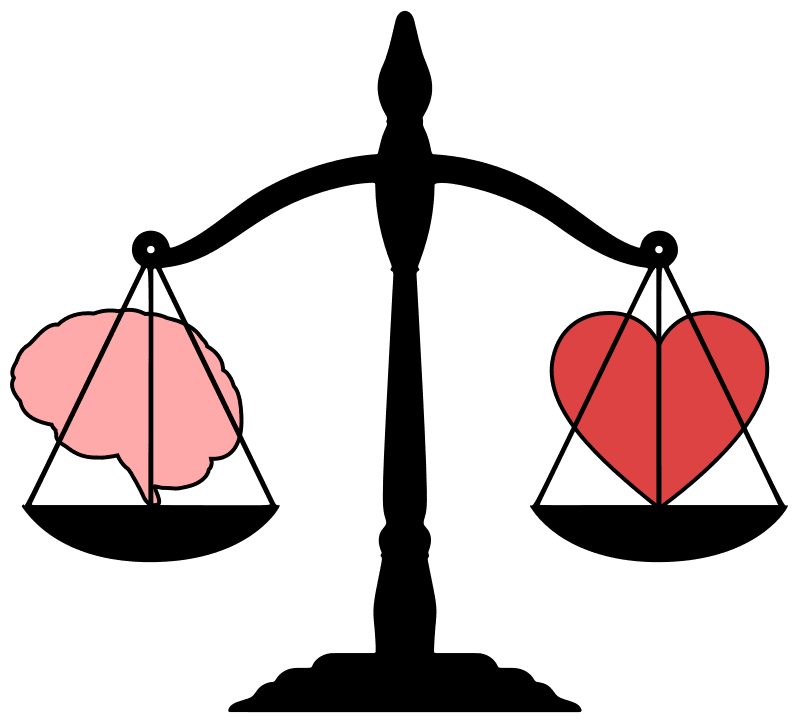 High EQ skills are key to becoming a strong leader. A study led by Joseph C. Rode, PhD, found that Emotional Intelligence was linked to higher salaries and increased job satisfaction in the workplace, impacting overall Life Satisfaction. A high EQ is needed for effective decision-making and stress management. Connelly Hayward, a master trainer in EQ, has outlined what he considers to be the 5 most important components of Emotional Intelligence in the workplace.
High EQ skills are key to becoming a strong leader. A study led by Joseph C. Rode, PhD, found that Emotional Intelligence was linked to higher salaries and increased job satisfaction in the workplace, impacting overall Life Satisfaction. A high EQ is needed for effective decision-making and stress management. Connelly Hayward, a master trainer in EQ, has outlined what he considers to be the 5 most important components of Emotional Intelligence in the workplace.
- Self-awareness: an ability to recognize and understand your emotions and the effect they have on you and those around you.
- Self-regulation: an ability to think before acting; to suspend judgment about a situation, person, or experience; to redirect any disruptive impulses.
- Social awareness: an understanding of the emotional temperature and state of those around you and how your words and actions affect them.
 Social regulation: an ability to influence the emotions of others and know when it is appropriate to do so.
Social regulation: an ability to influence the emotions of others and know when it is appropriate to do so.
- Motivation: your personal passion for work that goes beyond money, recognition, or promotion.
Studies have shown that components of EQ account for variances in Life Satisfaction that are not accounted for by personality. Research led by Małgorzata A. Basińska, PhD, evaluated the impact of EQ on Life Satisfaction in study participants with psoriasis, a chronic skin disease. The study Abstract confirmed the existence of a link between Emotional Intelligence and various aspects of human functioning, including satisfaction with life events in the presence of a chronic disease. EQ skills help protect the psychological and physical health of individuals, assist them in adapting to new conditions, and consequently contribute to the increase in life quality expressed in overall Life Satisfaction.
Emotional Intelligence is a way of recognizing, understanding, and choosing how we think, feel, and act. It shapes our interactions with others and our understanding of ourselves. It defines how and what we learn; it allows us to set priorities; it determines the majority of our daily actions. Research suggests it is responsible for as much as 80 percent of the “success” in our lives.
—Joshua Freedman
7th –
IUD & SUD Links. The use of digital devices has changed the way people communicate, gather information, and access the Internet. Research has yielded initial evidence for a negative association between empathy,  Life Satisfaction, and Internet Use Disorder (IUD)—defined as “problematic, compulsive use of the internet.” Recent studies led by Bernd Lachmann, PhD, examined the relationship between empathy, Life Satisfaction, and the related phenomenon of Smartphone Use Disorder (SUD)—defined as the “compulsive overuse of one type of technology.” While a positive association between Life Satisfaction and general Internet use was found, study results show a negative association with Life Satisfaction for SUD.
Life Satisfaction, and Internet Use Disorder (IUD)—defined as “problematic, compulsive use of the internet.” Recent studies led by Bernd Lachmann, PhD, examined the relationship between empathy, Life Satisfaction, and the related phenomenon of Smartphone Use Disorder (SUD)—defined as the “compulsive overuse of one type of technology.” While a positive association between Life Satisfaction and general Internet use was found, study results show a negative association with Life Satisfaction for SUD.
Patrick Van Kessel, Senior Data Scientist at Pew Research Center in Washington D.C., led a study of nearly 4,500 adults in the United States. Researchers analyzed responses to 30 different topics, with common contributors to Life Satisfaction identified, using a Life Satisfaction Scale of 0-10.
Reportedly, regardless of age, income, religion, or other demographic factors, Americans who mentioned the following 4 contributors as “meaningful” were more likely to rate their lives as satisfying:
- Health. Being healthy or having a healthy family clearly mattered to their sense of meaning: Those who mentioned health rated their lives more
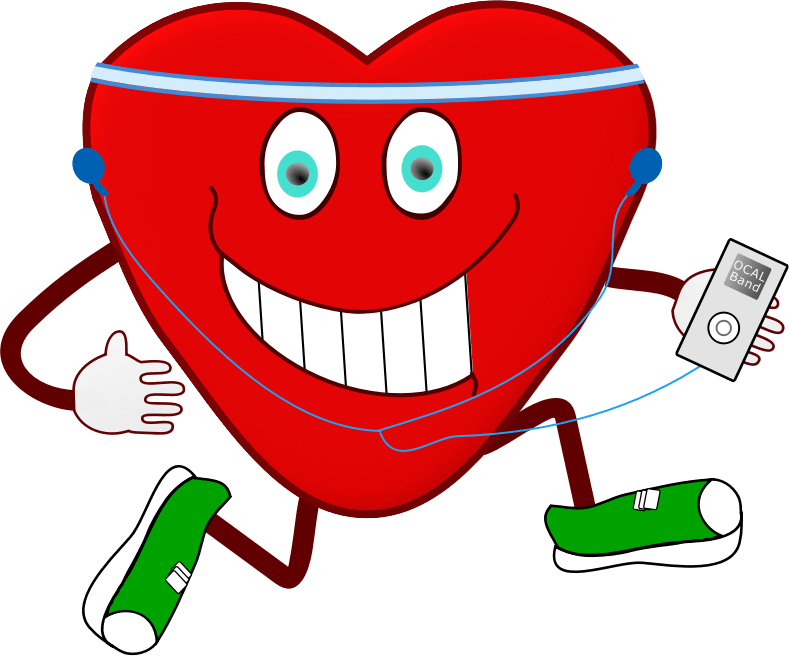 highly satisfying than references to any other topic, placing themselves 11 percent higher on the Life Satisfaction Scale.
highly satisfying than references to any other topic, placing themselves 11 percent higher on the Life Satisfaction Scale.
- Spouse/Partner. Regardless of their relationship status, those who mentioned their partner tended to rate their lives nine percent higher than those who did not mention a partner. Gratitude for their relationship was a common theme. For some, it was the first thing that came to their mind!
- Career/Job. One third of those interviewed mentioned their job or career. Those who did, rated their lives 8 percent higher, regardless of any other topics they may have mentioned.
 Friends. One in five Americans mentioned friends when describing where they found meaning in life, rating their Life Satisfaction 6 percent higher on the Life Satisfaction Scale.
Friends. One in five Americans mentioned friends when describing where they found meaning in life, rating their Life Satisfaction 6 percent higher on the Life Satisfaction Scale.
Our findings showed that memory declined with age. However, individuals with higher levels of positive affect had a less steep memory decline over the course of almost a decade.
—Emily Hittner, PhD & Claudia Haase, PhD
 Reminder: Drink a glass of water. Watch the short Birds & Brains video. Stand and walk in place for at least part of the video.
Reminder: Drink a glass of water. Watch the short Birds & Brains video. Stand and walk in place for at least part of the video.
Practical Applications
- Craft your own personal vision for Life Satisfaction.
 Hone your spirituality—the spirit with which you live life. Do something every day to evoke a sense of awe in your brain and heart; then pass it on. It only takes a moment to smile, to lift someone’s spirit, to make a positive difference in another person’s life and, in the process, make a positive difference in your own life.
Hone your spirituality—the spirit with which you live life. Do something every day to evoke a sense of awe in your brain and heart; then pass it on. It only takes a moment to smile, to lift someone’s spirit, to make a positive difference in another person’s life and, in the process, make a positive difference in your own life.
Volunteer. Perform random acts of kindness. Be creative. Make a difference. Spread your metaphorical wings, give thanks—and fly! Do something to improve your corner of the world and make it a better place to live. That may involve volunteering or continuingFor news of the heart, ask the face.
—African Proverb your own life’s work on a part-time basis. Role model a Longevity Lifestyle and leave a positive and memorable legacy.
your own life’s work on a part-time basis. Role model a Longevity Lifestyle and leave a positive and memorable legacy. - Surround yourself with those who:
-
- Possess a healthy superego that motivates them toward healthy self-care of both brain and body.
- Choose a positive mindset and self-talk.
- Utilize optimum communication patterns with others.
 Have a good sense of humor and choose to laugh a lot.
Have a good sense of humor and choose to laugh a lot.
- Are wise and supportive.
- Make healthier choices with the big picture in view.
- Love to learn. Turn new information into knowledge and practically apply it daily.
- Follow a Longevity Lifestyle path.
- Possess a healthy superego that motivates them toward healthy self-care of both brain and body.
- Keep striving to improve. The sky is the limit! To do this, you can never revert to your old habits. You always give up something to get something.
 Reverting to your old habits will return you to the outcomes they produced. As Dr. David Katz points out, lifestyle is the best medicine. As brain and body achieve a more desirable state of balance, neurochemicals and hormones may also move toward homeostasis. Maintain your gains! If hunger is not the problem, then eating is not the solution. If unmanaged emotions or relationship issues are the problem, then learning effective skills for managing emotions, relationships, and communication is the solution. If sleep deficit is the problem, then giving your brain the sleep it needs is the solution. Leave your old habits behind you even as you embrace the new and healthier replacement behaviors of a Longevity Lifestyle.
Reverting to your old habits will return you to the outcomes they produced. As Dr. David Katz points out, lifestyle is the best medicine. As brain and body achieve a more desirable state of balance, neurochemicals and hormones may also move toward homeostasis. Maintain your gains! If hunger is not the problem, then eating is not the solution. If unmanaged emotions or relationship issues are the problem, then learning effective skills for managing emotions, relationships, and communication is the solution. If sleep deficit is the problem, then giving your brain the sleep it needs is the solution. Leave your old habits behind you even as you embrace the new and healthier replacement behaviors of a Longevity Lifestyle.
One word can end a fight; One hug can start a friendship; One smile can bring Unity; One person can change your entire life!
―Israelmore Ayivor
 Reminder: Drink a glass of water as you dig into this last section. How are you choosing to apply this information practically in your everyday life?
Reminder: Drink a glass of water as you dig into this last section. How are you choosing to apply this information practically in your everyday life?
Think & Do
| The secret of genius is to carry the spirit of the child into old age, which means never losing your enthusiasm. —Aldous Huxley |
- What is your overall level of Life Satisfaction?
Those with high levels of Life Satisfaction typically exhibit a positive mindset and a good superego. They take excellent care of themselves and are concerned with the well-being of others as well. They take appropriate steps to keep their own “cup” full, which allows them to share from an overflowing supply rather than from a deep well of unmet needs. Find ways to “give back” to Planet Earth, its inhabitants (people as well as creatures), and the environments needed to sustain life. Think ahead. Do whatever you can to help ensure a quality life for the next generation, and the next, and the next.…
inhabitants (people as well as creatures), and the environments needed to sustain life. Think ahead. Do whatever you can to help ensure a quality life for the next generation, and the next, and the next.… - Is there a contributory factor to Life Satisfaction that you need to hone or add? Such as ...
-
- A mindset of happiness.
- Daily identifying things for which to be grateful.
Hope is the only thing stronger than fear.
―Robert Ludlum-
- Hope for the long view.
- A willingness and a choice to forgive.
- A balanced sense of self-worth.
- High levels of Emotional Intelligence.
- Hope for the long view.
- A mindset of happiness.
- Are the four common contributors identified in the Pew research data—Health, Partner/Spouse, Career/Job, Friends—present in your life?
Develop a true sense of contentment with who you are, what you have, whom you know, and where you are now. Continuing to strive for advancement and improvement without anxiety and negativity about what presently exists can lead to increased levels of happiness and higher levels of Life Satisfaction.
Continuing to strive for advancement and improvement without anxiety and negativity about what presently exists can lead to increased levels of happiness and higher levels of Life Satisfaction. - What is your typical “spirit” in everyday living?
Hone the spirit in which you live life; make time for relationships and things that bring you a sense of awe; tap into your super-ego and take good care of yourself. Don your own oxygen mask first, even as you care about and share with others! Craft a personal life vision and move toward it as you role-model wellness and longevity. As you grow and mature, practice healthy selfishness and healthy self-care and minimize over-reactions and “drama.” Paul Auster has pointed out that “adolescence feeds on drama.” Those who are more mature avoid drama whenever possible.
care about and share with others! Craft a personal life vision and move toward it as you role-model wellness and longevity. As you grow and mature, practice healthy selfishness and healthy self-care and minimize over-reactions and “drama.” Paul Auster has pointed out that “adolescence feeds on drama.” Those who are more mature avoid drama whenever possible.
Analyze your mistakes. You have already paid the tuition—you might as well get the lesson.
—Tim Fargo
Slow & Steady Wins
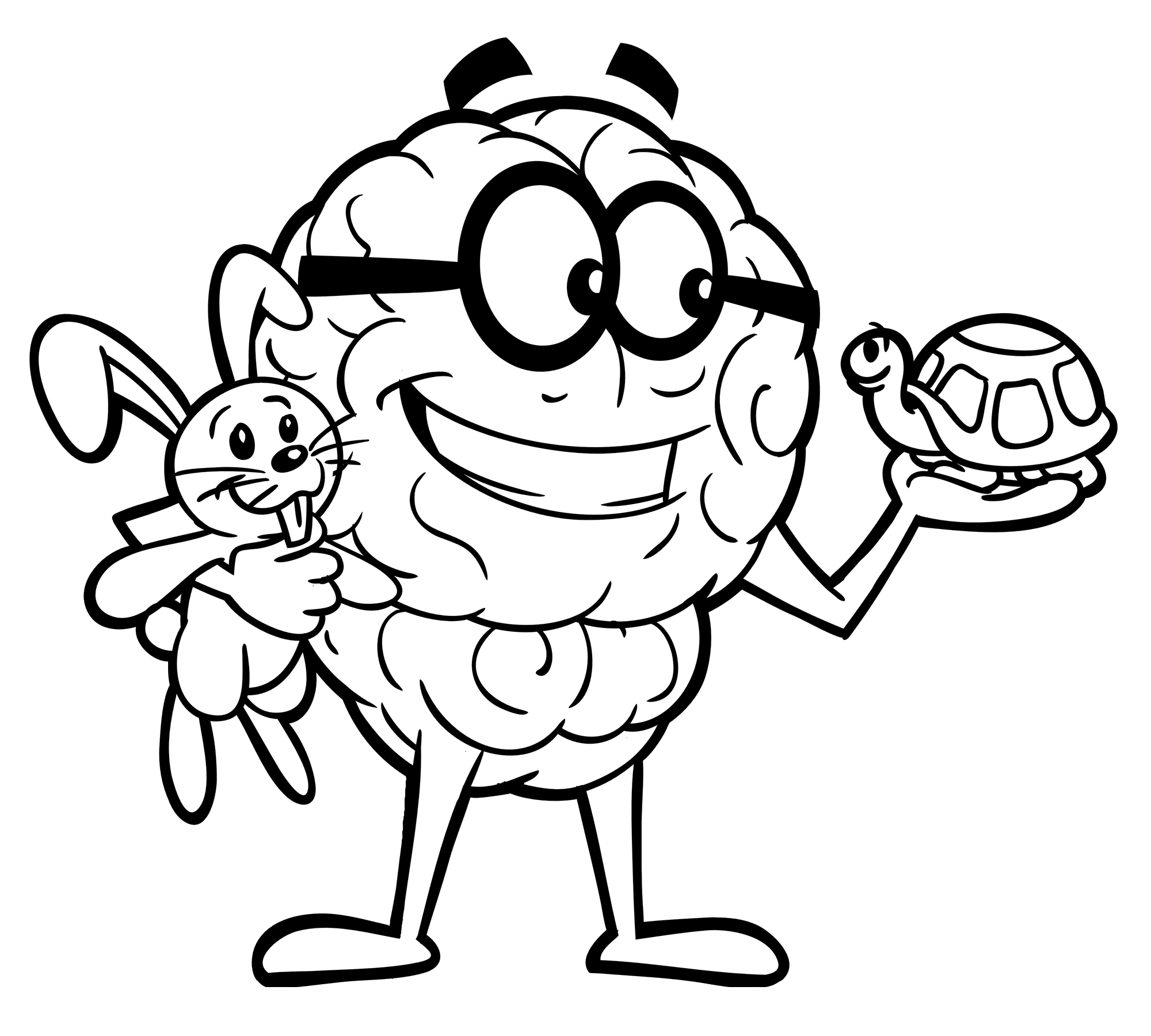 Concentrate on Module 12 during this entire week. Do your Daily Goals; reread the sections; relisten to the videos and audiobook excerpts. It takes the average adult four times through to really absorb the material and turn it into a new behavior. If you want positive results, rushing through the material, just because you can, may not provide the desired outcome. Practice, practice, and practice daily the twelve strategies of a Longevity Lifestyle—and thrive!
Concentrate on Module 12 during this entire week. Do your Daily Goals; reread the sections; relisten to the videos and audiobook excerpts. It takes the average adult four times through to really absorb the material and turn it into a new behavior. If you want positive results, rushing through the material, just because you can, may not provide the desired outcome. Practice, practice, and practice daily the twelve strategies of a Longevity Lifestyle—and thrive!
Realize that now, in this moment of time, you are creating. You are creating your next moment based on what you are feeling and thinking. That is what is real.
—Doc Childre
Congratulations!
 You have arrived at the end of Module 12—really the beginning of a solid Longevity Lifestyle. True success involves maintaining the Longevity Lifestyle components for the rest of your life. To do this, regular reviews are needed to keep your brain enthusiastic, committed, and on target.
You have arrived at the end of Module 12—really the beginning of a solid Longevity Lifestyle. True success involves maintaining the Longevity Lifestyle components for the rest of your life. To do this, regular reviews are needed to keep your brain enthusiastic, committed, and on target.
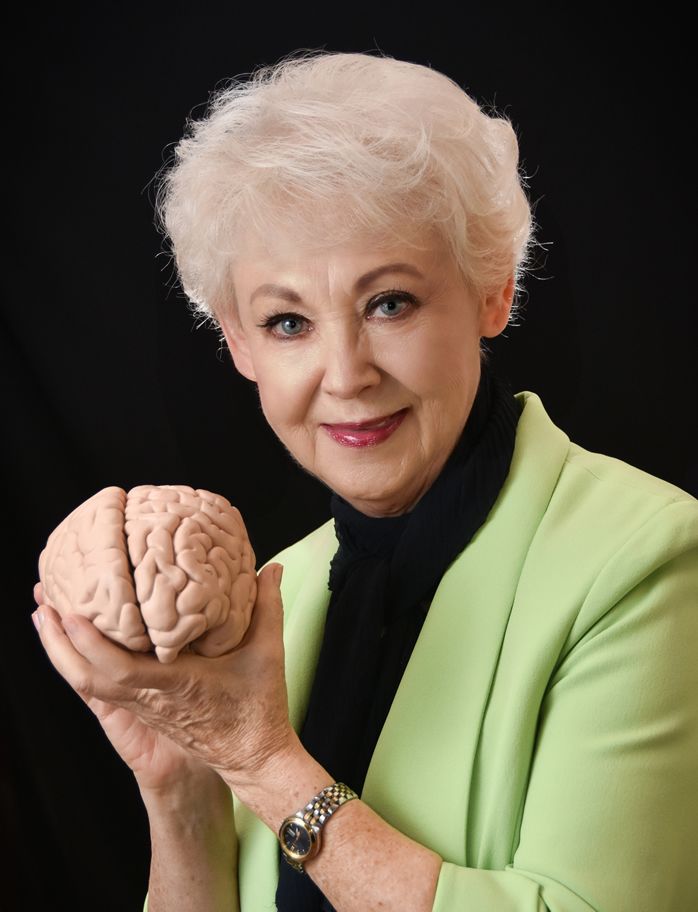 Start on a second 12 weeks. Begin with Module 1, selecting some of the contents to reread, relisten to, or view. Identify what you missed the first time or need more help in fully implementing. Continue with the remaining 11 modules.
Start on a second 12 weeks. Begin with Module 1, selecting some of the contents to reread, relisten to, or view. Identify what you missed the first time or need more help in fully implementing. Continue with the remaining 11 modules.
Then start again. This time select different items from each module to reread or relisten to. If you do this, you will go through at least portions of each module 4 times during the next 12 months. That will even more firmly embed the strategies in your brain and make staying healthier and younger for longer—more likely.
Bon Voyage!
 Be vigilant! Collaborate with your brain. Look ahead. If at any time you find yourself slipping off a Longevity Lifestyle journey, take this as a clue that your brain needs a refresher to keep it motivated. The human brain is very interesting in that, without ongoing reminders and motivation, it finds it easy to take the path of least resistance—especially if unusual
Be vigilant! Collaborate with your brain. Look ahead. If at any time you find yourself slipping off a Longevity Lifestyle journey, take this as a clue that your brain needs a refresher to keep it motivated. The human brain is very interesting in that, without ongoing reminders and motivation, it finds it easy to take the path of least resistance—especially if unusual 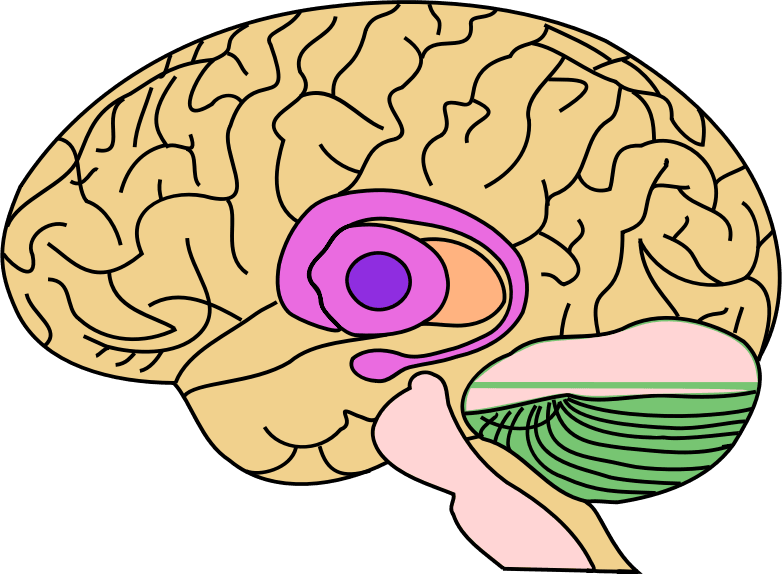 stressors or challenges arise. Work through the 12 modules again. When the Longevity Lifestyle Matters 2nd Edition books are released, read them to reinforce the strategies and keep your brain motivated.
stressors or challenges arise. Work through the 12 modules again. When the Longevity Lifestyle Matters 2nd Edition books are released, read them to reinforce the strategies and keep your brain motivated.
CE credit for Nurses in the USA
Realizations Inc. offers fifteen (15) contact hours of Continuing Education Credit for Nurses through the California Board of Nursing after the completion of the 12 modules. BRN Provider #08580. Certificates are sent by email. Cost is $15.00 USD.
Lesson List
- Module 2 – Emotional Intelligence (EQ)
- Module 2 – To Begin
- Module 2 – Slow & Steady Wins
- Module 1 – Mindset and Self-talk
- Module 1 – To Begin
- Module 1 – Slow & Steady Wins
- Module 1 – Mindset (educational video)
- Module 1 – Birds & Brains (video)
- Module 1 – Just the Facts - Chapter 1 (audio)
- Module 1 – Just the Facts - Chapter 2 (audio)
- Module 2 – EQ (Emotional Intelligence) (video)
- Module 2 – Just the Facts - Chapter 3 (audio)
- Module 4 – Sleep
- Module 4 – To Begin
- Module 4 – Slow & Steady Wins
- Module 3 – Mental & Physical Exercise
- Module 3 – To Begin
- Module 3 – Slow & Steady Wins
- Module 5 – Water
- Module 5 – To Begin
- Module 5 – Slow & Steady Wins
- Module 6 – Safety
- Module 6 – To Begin
- Module 6 – Slow & Steady Wins
- Module 7 – Sunlight
- Module 7 – To Begin
- Module 7 – Slow & Steady Wins
- Module 8 – Nutrition
- Module 8 – To Begin
- Module 8 – Slow & Steady Wins
- Module 10 – Support Network
- Module 10 – To Begin
- Module 11 – Stressors
- Module 10 – Slow & Steady Wins
- Module 9 – Laughter
- Module 9 – To Begin
- Module 11 – To Begin
- Module 9 – Slow & Steady Wins
- Module 11 – Slow & Steady Wins
- Module 12 – Life Satisfaction
- Module 12 – To Begin
- Module 12 – Slow & Steady Wins
- Module 2 — Birds & Brains, No. 2 - EQ (video)
- Module 3 – Exercise (educational video)
- Module 3 – Just the Facts - Chapter 4 (audio)
- Module 3 – Just the Facts - Chapter 5 (audio)
- Module 3 – Birds & Brains, No. 3 - Exercise (video)
- Module 4—Just the Facts - Ch. 6 (audio)
- Module 4—Birds & Brains #4 (video)
- Module 4—Sleep (educational video)
- Module 5—Water (educational video)
- Module 5 – Just the Facts - Chapter 7 (audio)
- Module 5 — Birds & Brains #5 (video)
- Module 6 – Safety (educational video)
- Module 6 – Just the Facts - Chapter 8 (audio)
- Module 7 – Birds & Brains #7 (video)
- Module 8 – Just the Facts - Chapter 10 (audio)
- Module 8 – Nutrition (educational video)
- Module 8 – Birds & Brains #8 (video)
- Module 7 – Just the Facts - Chapter 9 (audio)
- Module 6 — Birds & Brains #6 (video)
- Module 7 – Sunlight (educational video)
- Module 9 – Laughter (educational video)
- Module 9 – Just the Facts - Chapter 11 (audio)
- Module 9 – Birds & Brains #9 (video)
- Module 10 – Support Systems (educational video)
- Module 10 – Just the Facts - Chapter 12 (audio)
- Module 10 – Birds & Brains, No. 10 - Support Systems (video)
- Module 11 – Stressors (educational video)
- Module 11 – Just the Facts - Chapter 13 (audio)
- Module 11 – Birds & Brains No. 11 - Stressors (video)
- More Information
- Module 12 – Life Satisfaction (educational video)
- Module 12 – Birds & Brains, No. 12 - Life Satisfaction (video)
- Module 12 – Just the Facts - Chapter 14 (audio)
Teachers Info

Arlene R. Taylor, PhD
- Specialist:
- Website: https://www.arlenetaylor.org/
-
Arlene R. Taylor PhD, a leading speaker on brain function, is sometimes referred to as the brain guru. She specializes in simplifying this complex topic, with the goal of helping individuals understand more about the brain in general and their own in particular. She delights in helping others learn how to thrive by...

